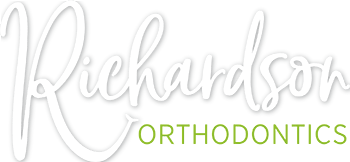
Have you been having jaw pain, headaches, or limited jaw mobility? You could be suffering from Temporomandibular joint disorder. TMJ disorder is a condition that affects the jaw joint and the surrounding muscles. There are many causes for the disorder, but what is the solution? While braces are primarily known for straightening teeth, there is growing interest in their potential for treating TMJ disorder.
If you’re curious about how braces can help your jaw recover from this often-debilitating condition, continue reading.
What is TMJ Disorder, Exactly?
Before exploring how braces and TMJ interact, it’s good to understand what the condition does and how. TMJ disorder refers to a group of conditions affecting the temporomandibular joint, which connects your jawbone to your skull. Some potential causes include:
- Leaning on your chin
- Excessive chewing on tough foods or gum
- Genetic predisposition
- Teeth grinding (bruxism)
- Jaw injury
As you can see, there are many potential problems that could cause a TMJ disorder to develop. So how can braces fix some of these issues?
How Braces Can Help
Most everyone knows that braces are used for straightening crooked teeth. However, braces can also affect the alignment of the jaw and improve the way your teeth fit together. Here’s how braces may help with TMJ disorder:
- Correcting Misalignment: Braces can address misaligned teeth and jaws, which often contribute to TMJ symptoms. By properly aligning the jaw, braces may lessen the pressure on the temporomandibular joint and surrounding muscles, reducing TMJ-related symptoms.
- Balancing the Bite: A misaligned bite can put stress on the jaw joint and trigger bruxism that damages teeth and worsens jaw discomfort. Braces can help correct bite issues, such as overbites, underbites, or crossbites, creating better jaw alignment and reducing TMJ strain.
- Providing Support: In some cases, braces may play a support role when used with other treatments that stabilize the jaw joint. Orthodontic appliances, such as bite splints or mouthguards, may be incorporated into your treatment plan to complement braces and alleviate TMJ-related discomfort. This can be especially important if you need more immediate relief while waiting for your braces to do their job.
TMJ disorder isn’t to be taken lightly. It can cause several issues that lower your quality of life. If you believe that you’re experiencing TMJ symptoms, talk to your orthodontist as soon as possible. They can evaluate your jaw and work with you on a treatment plan to get you out of pain, and back to smiling.
About the Practice
At Richardson Orthodontics, you’ll find a talented team of professional orthodontists to meet all your treatment needs. They use state-of-the-art dental technology and proven techniques to provide quality care that’s efficient and affordable. Whether you need new braces, or to get adjustments on the ones you already have, their team is ready to help! Call (972) 238-7101 to schedule an orthodontic consultation, or visit the website to discover other services.

